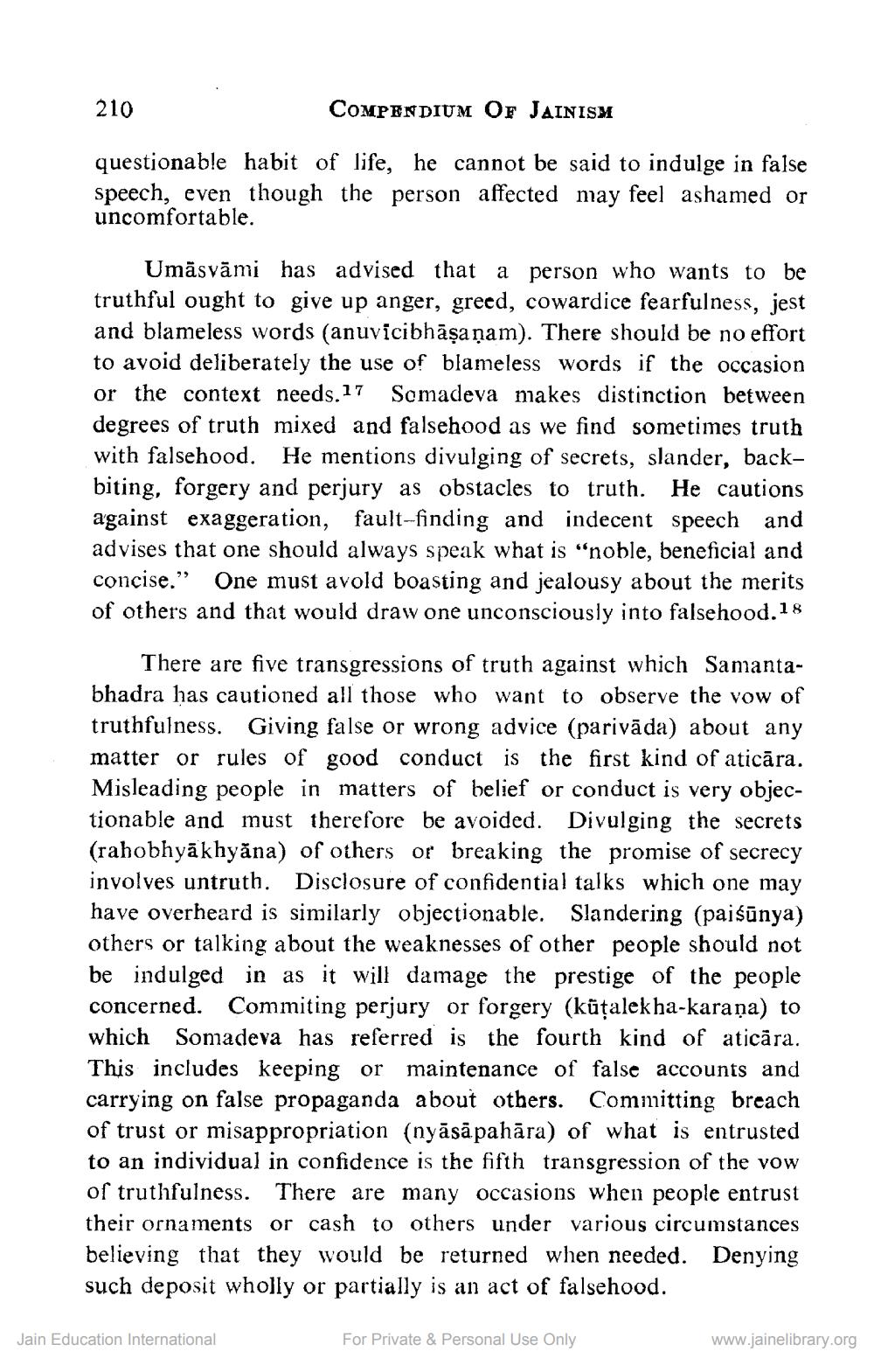________________
210
COMPENDIUM OF JAINISM
questionable habit of life, he cannot be said to indulge in false speech, even though the person affected may feel ashamed or uncomfortable.
Umāsvāmi has advised that a person who wants to be truthful ought to give up anger, greed, cowardice fearfulness, jest and blameless words (anuvicibhāṣaṇam). There should be no effort to avoid deliberately the use of blameless words if the occasion or the context needs.17 Somadeva makes distinction between degrees of truth mixed and falsehood as we find sometimes truth with falsehood. He mentions divulging of secrets, slander, backbiting, forgery and perjury as obstacles to truth. He cautions against exaggeration, fault-finding and indecent speech and advises that one should always speak what is "noble, beneficial and concise.” One must avold boasting and jealousy about the merits of others and that would draw one unconsciously into falsehood.18
There are five transgressions of truth against which Samantabhadra has cautioned all those who want to observe the vow of truthfulness. Giving false or wrong advice (parivāda) about any matter or rules of good conduct is the first kind of aticāra. Misleading people in matters of belief or conduct is very objectionable and must therefore be avoided. Divulging the secrets (rahobhyākhyāna) of others or breaking the promise of secrecy involves untruth. Disclosure of confidential talks which one may have overheard is similarly objectionable. Slandering (paiśūnya) others or talking about the weaknesses of other people should not be indulged in as it will damage the prestige of the people concerned. Commiting perjury or forgery (kütalekha-karana) to which Somadeva has referred is the fourth kind of aticāra. This includes keeping or maintenance of false accounts and carrying on false propaganda about others. Committing breach of trust or misappropriation (nyāsāpahāra) of what is entrusted to an individual in confidence is the fifth transgression of the vow of truthfulness. There are many occasions when people entrust their ornaments or cash to others under various circumstances believing that they would be returned when needed. Denying such deposit wholly or partially is an act of falsehood.
Jain Education International
For Private & Personal Use Only
www.jainelibrary.org




